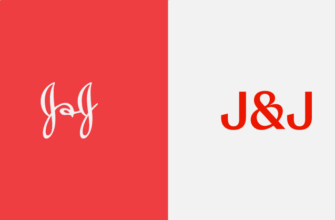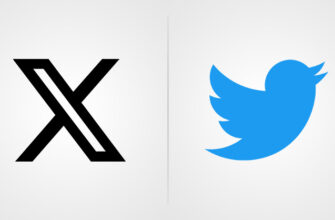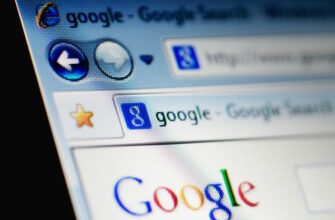Greetings to another episode of our Creative Branding series. Last time we asked our esteemed panelists about the best brands by region. And they so didn’t disappoint.
Today we’ll be taking a look at a major brand and what happens when they decide to remove labels’.
Coca Cola has been in the news in the Middle East. Its claim to fame this time – removing all labels of the Coca-Cola text in their cans. Their thinking is that human beings shouldn’t be about the labels, so why should their product be as well?

Image Source: adweek.com
A World Without Labels. A Brand Without Labels.
We asked our panelists to chime in, and their responses are well-thought and insightful about why this move of going label-less might prove to be interpreted in interesting ways.
- João Garzón de Albuquerque, Founder & CEO at Workaboutdesign, always looks for the deeper meaning behind design.
- Henk C. Meerhof, specialist in visual communication and independent designer. He has an eye for design and has been in the business for a decade.
- Sean B. Jamshidi, Founder and Creative Director at DesignFacet, deconstructs the co-branding phenomenon with a design, marketing and aesthetical standpoint.
“I just don’t get it. Coca Cola says that labels are for cans and not for people. So where is the label on the can? Maybe somehow the translation from Arabic to English got lost here or is Coca Cola trying to confuse us?
Labelling is necessary not only for products but ever-since society came into existence, mankind needed labels to identify personal status, cultures, religions and the arts. Without labels society would be a total mess and there would be mass confusion. Identifying a good product from a sub-par product would be difficult. Also without labels design is dead.
Coca Cola is trying to miss product labelling with religious and cultural labelling. They are two different worlds, one static and one organic. Humans are organic and change is constant therefore labelling is needed.
The minute we are born we identify our parents by their names, Dad and Mom. Coca Cola is up to no good with this message. If they really want no labels then why are they identifying the Islamic festival of Ramadan? Is that not labelling? This marketing will not work in the west or anywhere else other than the country it was chosen for.”
Coke or Coca-Cola has been pretty active in the Middle East these days. I like the concept behind this one “labels are for cans not people” and to choose to go east to activate it’s bold but effective. That said I would hardy call that can without label it screams Coca-Cola all over it even to a non Coke drinker. I believe the graphics could have been so much more disruptive there. If that can is without label so it is Nike’s products or Apple’s for that matter, that ribbon is more than recognizable. They just drop the lettering later than the previous mentioned. You can find here below an image that says it all, it’s from an also nice thought campaign of theirs, just look at what the guy is holding.
The Look on their faces says it all
Ok keep the can but the real thing would have been to just leave the sentence. Social good sure why not, brands should arise debate beyond their product, the more active they are socially the more people will relate to them. We are living the age of quick feedback so positive actions will keep a brand talked, likeable and related. But lets also not be naïve that was just the anchor for a brand activation in a welcomed sales increase area of the globe, in that sense also yes, it has and must be a marketing stunt to exist alone. Nevertheless in all it’s thumbs up, congrats. The metrics should read as so also, for sure.
For me as a Dutchman it is not very innovative to brand without a Logo or better to say without a name. The Dutch people are used to the ‘Zangeres zonder naam’ (Singer without a name), stage name of Maria (Mary) Servaes-Beij and BZN which is short for the ‘Band Zonder Naam’ (Band without a name), from Volendam. So getting famous without a name is nothing new.
Of cause am I glad for the success of the Coca Cola Company, their brand is well known around the world that there is no need for a name in their logo. Someone at Coca Cola must have read something about Nike, ‘Just do it’ maybe?
But what can we ordinary people learn from this? Would you recognize logo #1 or #2? If you are not from the region, you have to guess. Can you guess where it’s from or what it means? Most readers will not unless they know the logo. What about #3?
With other words, branding with only a simple form is very hard to do without the brand being known already and/or with a huge budget to make sure people learn to recognize the visual element(s) used. That rules out all those hard working freelancers and corner shop owners. Even medium sized firms will have a hard job to use such way of branding.
This non-logo idea is part of umbrella campaign to fight the prejudice. Does this idea of Coca Cola work? I don’t think so. Yes many people relate in a positive way on Coca Cola. Even amongst notorious Cola haters it still is a positive brand – they can loosen rusted nuts and bolts with the beverage. But making people think about prejudice is just going a bit far. In my eyes the campaign is still positive. Better have tried and failed than never have tried. Not that Coca Cola will fail, they will reach many people with this message. Depending on how the campaign further develops the outcome could even surprise an old grumpy designer like me.
But the roots of prejudice lie deeper than having a Coke and a smile. Something we all have to work on, with and without a logo.
I can’t help myself, do you recognize logo #4? Anyone?
Sdr. Herreds Kraftvarmeværker (Sdr. Herreds district heating plant, Denmark).
Hamburg (Municipality of Hamburg, Germany).
Gemeente Amsterdam (Municipality of Amsterdam, the Netherlands).
Dutch embassy, part of the identity of the Dutch government.
Can Brands survive without their name accompanying their products?
Cars. Fast food chains. Fashion accessories. All of these are ubiquitous enough to be considered a household name. This is due to their strategic positioning and marketing blitzkrieg over the years, making consumers think of these brands as distilled to their core components.
For big and international brands this practice might not come with huge risks. But there are other angles to account for such as culture, location, popularity, etc. that can go on to inform a demographic’s perception of their brand.
So to sum it up, small brands might be better off not taking a huge gamble of branding like this. Coca-Cola has the brand recognition and popular culture backing it up, so for them, such a move can prove to be a success in certain regions.













